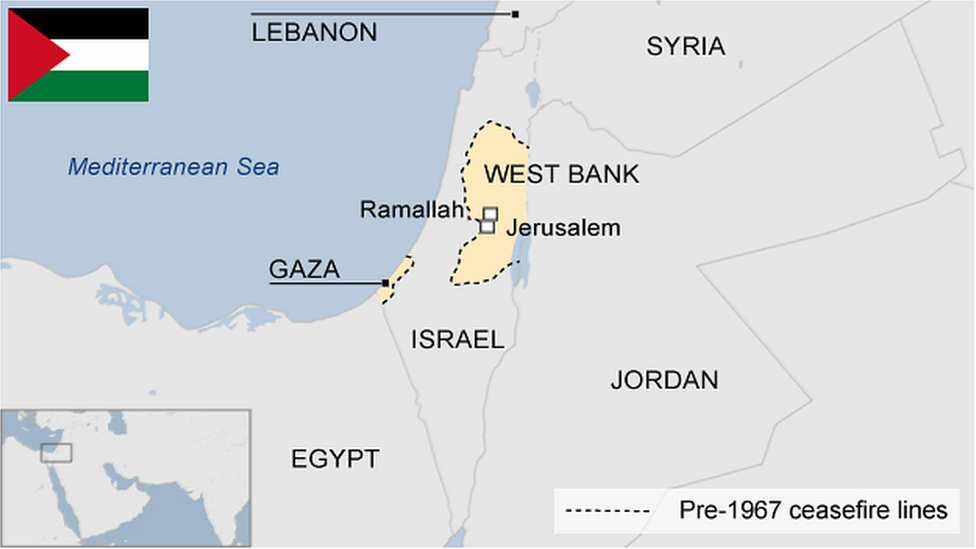Israel-Gaza violence spirals after killing of top Palestinian militant
- Published
Gaza militants retaliated with rocket fire - then Israel responded with further air strikes
Israel has carried out fresh strikes on targets in Gaza as militants there stepped up rocket attacks following the killing of one of its leaders.
Israel says air and ground forces hit sites used by the Palestinian Islamic Jihad (PIJ) group. More than 150 rockets have been fired at Israel.
Violence escalated after Israel killed PIJ commander Baha Abu al-Ata. Four more Palestinians were also killed.
One Israeli man was injured by a rocket, Israeli medical services say.
What is the latest?
The Israel Defense Forces (IDF) carried out waves of attacks throughout the day on what it said were PIJ targets. Among the sites the IDF said it hit was what it called a "terror tunnel", which it said the PIJ planned to use to attack Israeli civilians.
It said it also hit training compounds and weapons factories and storage facilities.
Three Palestinians were killed in air strikes in northern Gaza, one of which targeted a group preparing to launch a rocket, Israel said.
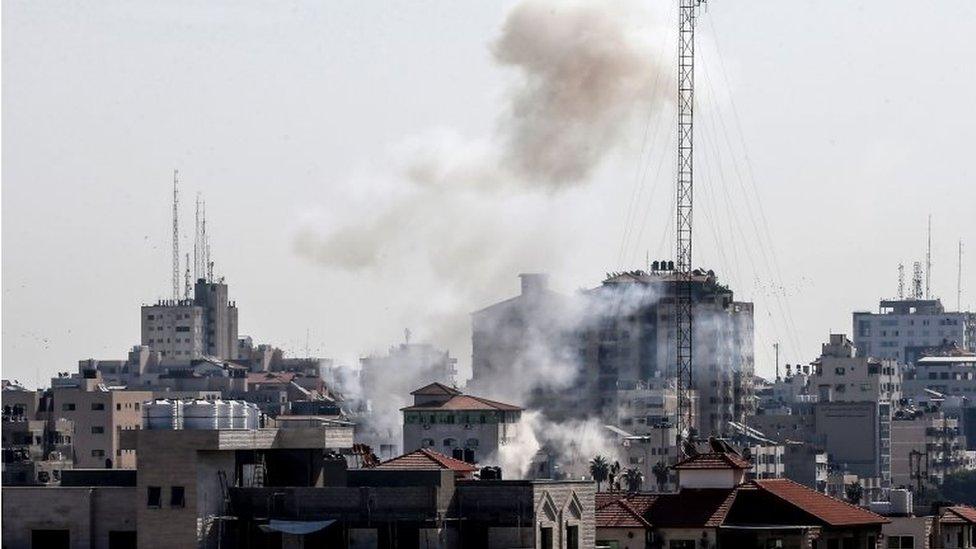
Israel carried out waves of air strikes on what it says were PIJ sites in Gaza
In Israel, air raid sirens sounded across the country as volleys of rockets were fired from Gaza since the early morning. Hundreds of thousands of Israelis have taken shelter in bomb-proof rooms, and schools and businesses were ordered closed.
Dozens of Israelis have been treated for injuries as an indirect result of rocket-fire, Israeli medics say.
Gaza's health ministry says about 30 Palestinians were wounded by the Israeli attacks.


Baha Abu al-Ata came to prominence in Gaza this year, commanding fighters of Islamic Jihad's al-Quds Brigade in the north and east of the strip.
But he acted increasingly outside of the control of the dominant militant faction Hamas, ordering rocket attacks seemingly without approval after Israeli soldiers shot and injured dozens of Palestinians during regular protests at the perimeter fence earlier this month.
A Palestinian TV presenter even warned on-air recently that his actions might see the Israelis trying to kill him.
A serious escalation in hostilities is now likely, despite Israel's efforts to signal to Hamas that it has not returned to a wider strategy of so-called targeted killings.

What have Israel and the Palestinians said?
Israeli Prime Minister Benjamin Netanyahu said that while Israel was not seeking escalation, it was prepared for a protracted period of fighting.
"Whoever thinks that they can hit our citizens and evade our long arm is wrong," he told a news conference in Tel Aviv.
"We've proven that we can hit, surgically, wherever the terrorists hide. Whoever harms us, we will harm them."

Palestinian groups in Gaza meanwhile issued a joint statement, saying Israel had crossed "all red lines" and would face consequences.
At Abu al-Ata's funeral, senior PIJ official Khaled al-Batsh said Israel had issued "a declaration of war".
The group vowed to avenge Baha Abu al-Ata's death in a way which would "rock the Zionist entity" - a reference to Israel.
What caused the flare-up?
The immediate trigger was the killing by Israel of Baha Abu al-Ata in what it called a "surgical strike" on a building in the eastern Shejaiya area of Gaza in the early hours of Tuesday.
Mr Netanyahu said Abu al-Ata was a "ticking bomb" whose death thwarted an imminent attack on Israelis. The prime minister said the militant was responsible for many rocket attacks on Israel.
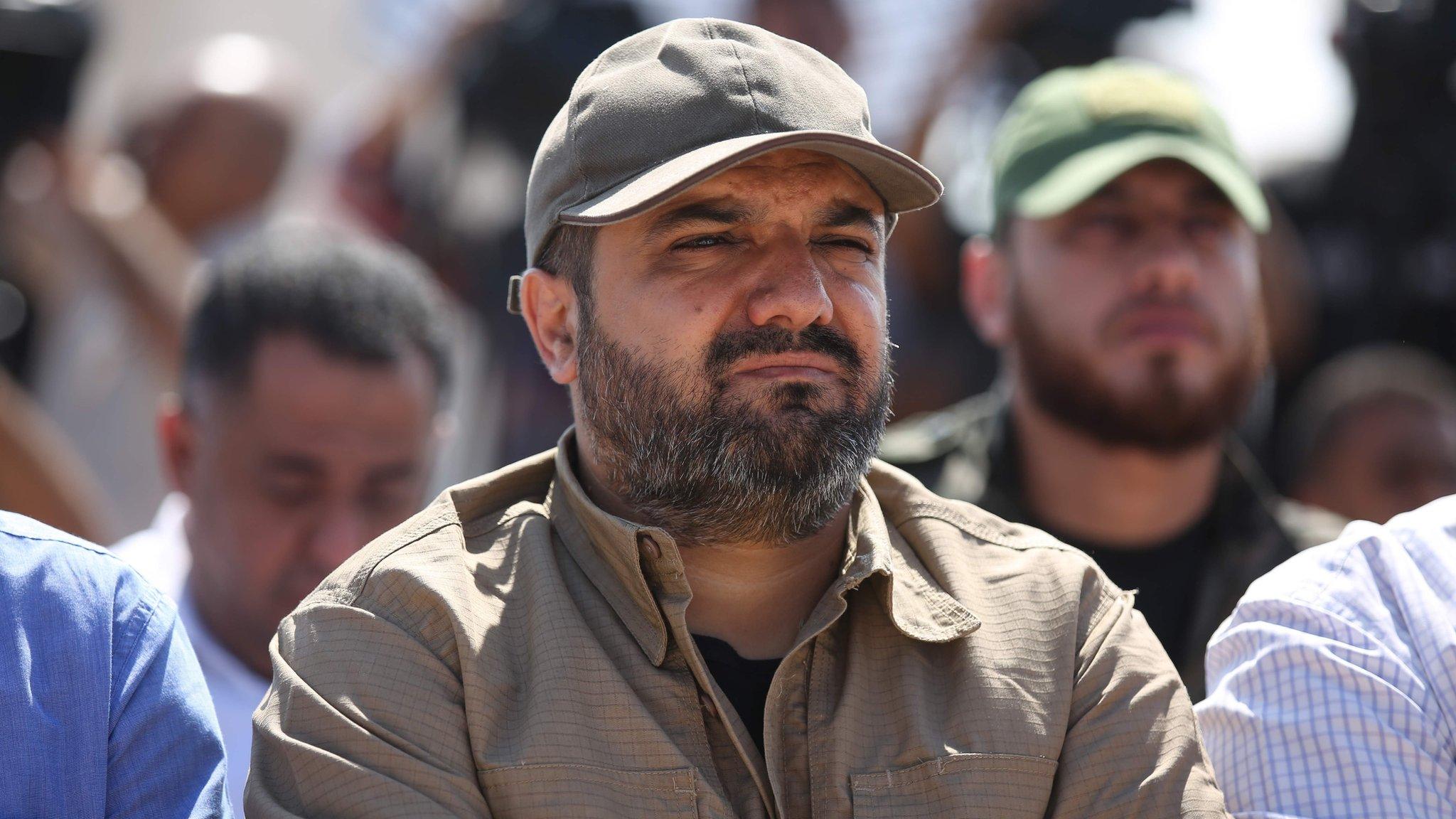
Palestinian Islamic Jihad has vowed to avenge Baha Abu al-Ata's death
IDF chief of staff, Lt Gen Aviv Kochavi, said Abu al-Ata had undermined recent efforts to broker a ceasefire between Israel and Hamas, which runs Gaza and is considered a rival to PIJ.
Abu al-Ata's wife was killed alongside her husband, while four of their children and a neighbour were reportedly injured.
Around the same time as the attack on Abu al-Ata, two people were killed and 10 injured in an Israeli air strike on the home of another Palestinian Islamic Jihad leader in the Syrian capital, Damascus, Syria's state news agency Sana said.
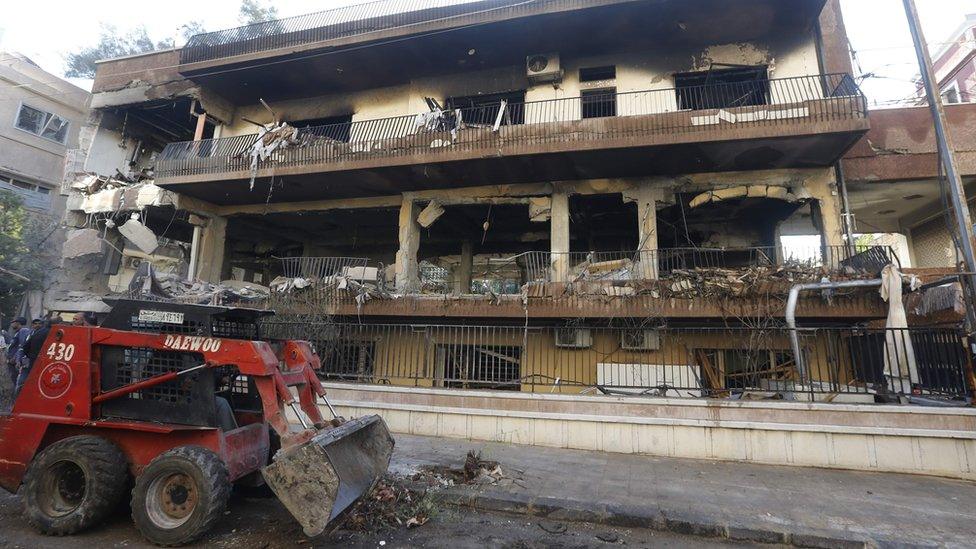
Syrian media said another Israeli air strike targeted the home of a PIJ leader in Damascus
Sana cited a military source as saying the PIJ leader, Akram al-Ajouri, was not harmed, but that his son was among the dead. Israel's military did not comment.
PIJ, which is backed by Iran, has its headquarters in Damascus and is one of the strongest militant groups in Gaza.
- Published16 January
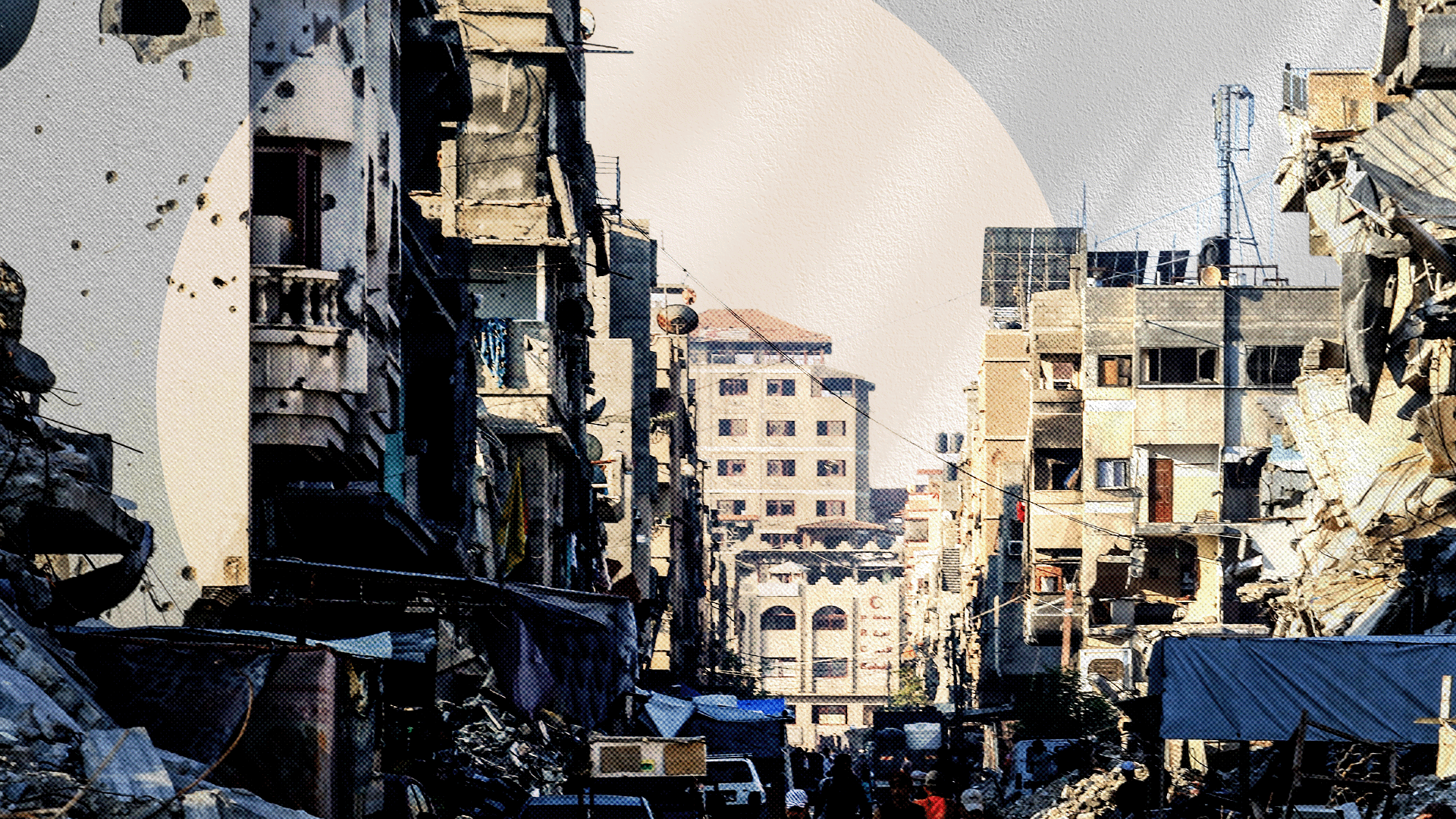
- Published24 June 2019
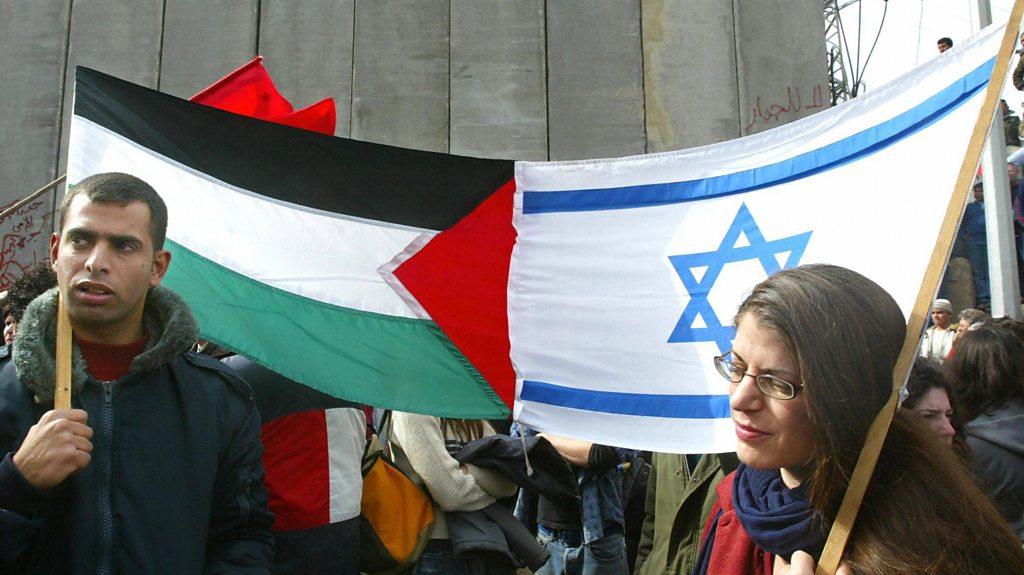
- Published26 June 2023
